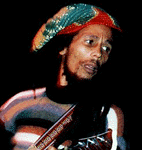
Bob Marley
Bob Marley was a hero figure, in the classic mythological sense. His departure from this planet came at a point when his vision of One World, One Love - inspired by his belief in Rastafari - was beginning to be heard and felt. The last Bob Marley and the Wailers tour in 1980 attracted the largest audiences at that time for any musical act in Europe.
The tiny Third World country of Jamaica has produced an artist who has transcended all categories, classes, and creeds through a combination of innate modesty and profound wisdom. Bob Marley, the Natural Mystic, may yet prove to be the most significant musical artist of the twentieth century.
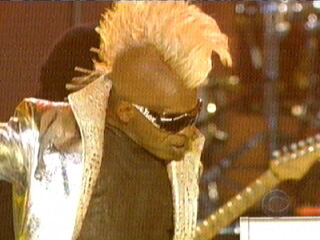
GRAMMY - Sly Stone Tribute
In an unprecedented gathering of musical talent, Maroon 5, will.i.am of The Black Eyed Peas, John Legend, Steven Tyler and Joe Perry of Aerosmith, Joss Stone, Robert Randolph, and singer Devin Lima joined together at this year’s 48th GRAMMY Awards to pay tribute to one of the 20th Century’s true musical innovators and icons: Sly And The Family Stone. This special Grammy salute to Sly & The Family Stone comes on the heels of the announcement of the release of Different Strokes By Different Folks, an album of timeless hits of Sly And The Family Stone covered and remixed by the artists from the Grammy tribute. Check out their web site.

William Shakespeare
Several 17th-century clay pipes found on the site of William Shakespeare's home may have been used to smoke marijuana.
Though marijuana degrades over time, eight of those pipe fragments showed signs suggestive of marijuana. Two of the pipe samples also showed evidence of cocaine.
The results of the study are published in the South African Journal of Science.
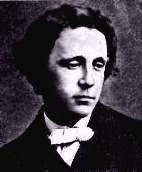
Lewis Carroll
and Through the Looking Glass, 1872.
consciousness; and humorous contempt for the establishment, beliefs, bureaucracies, and injustices
of their day (for example, Les Miserables). The science of psycho-pharmacology started in
France circa 1845 with Doctor J.J. Moreau DeTours, and cannabis became one of the first drugsused
to treat the insane and depressed. Moreau was best friends with Dumas, Hugo, and Gautier, and in 1845
co-founded with them in Paris the first cannabis club in the Western World: Le Club Des Haschischins.
http://users.inetw.net/~mullen/alicewon.htm
http://www.lewiscarroll.org/

Bill Clinton
Too bad he never inhailed!
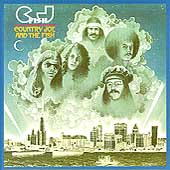
Country Joe and the Fish
Joe McDonald has a beautiful web site worth visiting. He was an activist in the 60's and is still an activist.
http://www.countryjoe.com

"It really puzzles me to see Marijuana connected with Narcotics -
Dope and all that crap…it's a thousand times better than whiskey -
it's an Assistant - a friend."
- Louis Armstrong
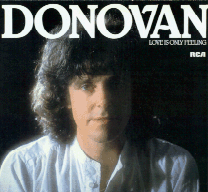
A Message From Donovan
Here in 1993, I am once again inspired to write songs for a new generation. My younge Leitch. He loves music, and I sit with him on my knee making new songs for the little ones.
I shall play him this new CD (though he can hear me play live any time he wants to!). I am in the studio recording my latest songs and will be in concert again soon with the new album, and of course I will sing a song I have always loved from this album, 'Isle of Islay'.
I send my thanks to all of you who have shared these songs with me.
Love and light,
Donovan.
May 25, 1993.
http://www.sabotage.demon.co.uk
 |
MANU CHAO IS CURRENTLY VIEWED AS A PROPHET IN EUROPE AND SOUTH AMERICA.
active beings in half of the world. What I really am surprised about is that with the WTO disorders in Seattle, with the No Logo, anti-corporate issues growing in strength and importance by the day, Manu Chao and his music are yet virtually unheard of in the U.S. So, WHO IS this Manu Chao guy? Manu has been nominated for BEST LATIN ROCK/ALTERNATIVE ALBUM in this year's (2002) Grammy's for 'Proxima Estacion: Esperanza'. Good Luck Manu! |
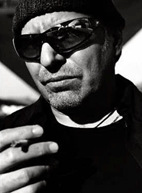 |
Vasco Rossi
"No alla droga, ma la marijuana è un'altra cosa" (no to drugs but marijuana is another thing) Since the mid-1980s, Vasco Rossi has been one of Italy's biggest rock music stars. He continues to sellout large concert venues in his homeland with his aggressive rock sound and independent and expressive lyrics. |
NEWS/ VASCO ROSSI LENDS A HAND TO DON GALLO
16/09/2003
(ANSA) - Genoa, September 12 - The singer Vasco Rossi has donated 25,000 euro to don Andrea Gallo, founder of the St. Benedict community at Genoa's port. He gave the money to the priest during a meeting of the Genoese community. The money represents the proceeds of the sale of T-shirts bearing the message 'Legalize' like the one that the rock singer wore at the three concerts in San Siro last July. ''I came here to meet don Gallo - said Rossi -. I had heard of him, and I wanted to meet him in person to give him the money for those in need''. Speaking of the recent campaign, Vasco Rossi affirmed that ''it is important to talk about 'legalization': the problem of drugs must be taken seriously and not over-simplified. It is not true that all drugs are the same; that marijuana is like heroine. Marijuana is not like heroine which is a highly dangerous drug. I'm not saying marijuana is good for you but neither is alcohol. Basically - the singer concluded - I believe we need a more comprehensive response from the Italian state aimed at reducing the damage caused by drugs and characterized by a socially inclusive approach. We also need to put an end to the vilification of drugs victims''. According to don Gallo, ''there's a new educational theory in Vasco's message: the theory of freedom. His recent call for liberation - rather than liberalization - was an inspired message which brings us back to the question of personal responsibility. We need to leave behind the prohibitionist era which has utterly failed to solve this problem''.

Aleister Crowley and the Devil's Weed
by Chris Bennett (01 Nov, 1999)
The Great and Wild Beast 666 used potent pot as an aid to magical practice
"The action of hashish is as varied as life itself and seems to be determined almost entirely by the will or mood of the 'assassin,' and that within the hedges of his mental and moral form. I can get fantastic visions, or power of mind – analysis, or spiritual exaltation, or sexual excitement of various kinds, or ravenous hunger, or vigor of imagination, whichever I please, absolutely at will, on a minute dose of the Parker Davis extract. This is simply because I have discovered the theory and perfected the practice of the instrument."
- Aleister Crowley 1920
Birth of the Beast
Born at the height of the Victorian era in 1875, into the household of a strict religious sect of Plymouth brethren, the young Aleister Crowley was given little to read as a child besides the Bible. Being both a prodigious and rebellious lad, and having soon mastered the contents of the Good Book, he concluded at an early age that his mother's references to him being a "beast", indicated his identification with "the Beast, whose number is 666" of the New Testament's book of Revelation. This was a role he strove to fulfill for much of his controversial life.
A world class mountain climber and master chess player, Crowley was a fit and intellectual individual who took a scientific approach to the emotionally and imaginatively charged art of magic (which he renamed magick, to differentiate it from the popularized entertainment form). A pioneer of free-love and the mystical use of drugs, Crowley was amongst the weeds that broke the pavement of the stodgy and morally repressed Victorian era.
The supreme ritual
In a 1907 Essay, The Psychology of Hashish, Crowley wrote that in his extensive studies into the history of the occult he "found this one constant story. Stripped of its local chronological accidents, it usually came to this – the writer would tell of a young man, a seeker after hidden Wisdom, who, in one circumstance or another, meets an adept; who, after sundry ordeals, obtains from the said adept, for good or ill, a certain mysterious drug or potion, with the result (at least) of opening the gate of the other world. This potion was identified with the Elixir Vitae of the physical Alchemists, or one of their 'tinctures' most likely the 'white tincture' which transforms the base metal (normal perception of life) to silver (poetic conception)…"
After "poisoning" himself with "every drug in (and out of) the Pharmacopoeia" in search of the above preparation, Crowley came to believe that this substance was a "sublimated or purified preparation of Cannabis Indica." Preceding the theories of Gordon Wasson, Jonathan Ott, Terrence Mckenna and others by more than half a century, the Beast went so far as to speculate that "this ceremonial intoxication constitutes the supreme ritual of all religions."
Crowley further claimed that this mysterious herb was one of the prohibited trees in the Garden of Eden, "…if not the Tree of Life, at least of that other Tree, double and sinister and deadly…" In rhetorical response to Jehovah's ancient taboos, the Beast wrote: "Nay! for I am of the Serpent's party; Knowledge is good, be the price what it may."
Cannabis consciousness
In The Psychology of Hashish Crowley indicates a vast knowledge of the esoteric history of the herb, quoting the works of fellow hemp enthusiasts such as Zoroaster, the medieval alchemists, the works of members of Paris' Hashish Club, and other 19th century literary figures. Unfortunately, he was forced to hold back much of this knowledge, due to his association with certain occult groups, who believed that secrets revealed equals power lost.
Crowley wrote that "in order to keep the paper within limits," he had to restrict himself to information that was already quite available to the public at large, "lest the austerity of such a Goddess be profaned by the least vestige of adornment."
Unable to openly discuss the esoteric history of the herb, Crowley decided to look at other areas of interest. Having spent some years practicing yoga, ceremonial magic and other techniques of exploring the workings of the mind, as well as studying scientific literature on the subject, Crowley felt confident in discussing the effects of cannabis on the psyche of man.
Noting that "Yogis employed hashish… to obtain Samadhi, that oneness with the Universe," Crowley focussed on cannabis' ability to invoke different mental states, which he compared to similar states of consciousness associated with meditative and magical practices.
The first of the cannabis-consciousness states is termed by Crowley as the volatile aromatic effect, which he saw as being marked by an "absolutely perfect state of introspection… of an almost if not quite purely impersonal type."
The next state of consciousness attainable with cannabis, the toxic hallucinative effect, begins with thoughts and images passing "rapidly through the brain, at last vertiginously fast. They are no longer recognized as thoughts, but imagined as exterior… The fear of being swept away in the tide of relentless image is a terrible experience."
Crowley felt the best combatant against this delusional and paranoid state was a meditatively attuned and magickaly trained mind, as both these techniques "lead the mind to immense power over its own imaginations."
In the third and final level of consciousness attainable from cannabis, the narcotic effect, "one simply goes off to sleep."
Crowley noted that certain preparations of cannabis seemed to favourably elicit these different states of consciousness even more than dose size did, and believed that the effects themselves may be due to "three separate substances" in the plant, with differing strains having differing amounts of each.
Impersonal introspection
In relation to his own work and psychological goals, Crowley saw the most desirable of these states of consciousness to lie in the introspective state produced by the volatile aromatic effect.
Crowley, like other occultists of the time, saw this impersonal introspective state as ideal for the act of astral traveling, and offered instruction in his essay for its experimental practice. More importantly, Crowley saw cannabis as having the potential to aid the mind in achieving the ultimate state of consciousness, in which "Ego and non-Ego unite", and duality, or ego-bound consciousness, is transcended and Samadhi is achieved.
"If hashish-analogy be able to assist us here, it is in that supreme state in which man has built himself up into God," wrote Crowley. "One may doubt whether the drug alone ever does this. It is perhaps only the destined adept who, momentarily freed by the dissolving action of the drug… obtains this knowledge which is his by right, totally inept as he may be to do so by any ordinary methods."
Stoned initiations
Modern occult writer Francis King has speculated that Aleister Crowley may have been initiated into the magical use of drugs by chemist and student of pharmacology CG Jones, who also introduced the young Crowley into the Hermetic Order of the Golden Dawn. (Crowley would later find himself in a court battle with the Order after publishing some of their secret writings.)
Other famous members of the Golden Dawn can also be tied to cannabis use. British poet WB Yeats experimented with marijuana as an aid in the development of psychic powers, and the writer Lewis Carroll incorporated a cannabis-puffing caterpillar and a magical mushroom in his famous Alice in Wonderland.
Probably not realizing what a strong influence it would have on a generation, Crowley is reputed to have introduced the young Aldous Huxley to mescal in a pre-Hitler Berlin Hotel room, as well as initiating sci-fi writer HG Wells to the mysteries of hashish.
Higher minds
Utilizing cannabis, mescaline and a variety of other substances, Crowley would create and perform mythologically imbued occult rituals, which were directed at bringing the devotees into closer contact with higher states of consciousness. He had hopes of perfecting a method which would make the mystic frame of mind available to humanity at large. Far from seeing his work as something new and novel, Crowley rightfully saw such drug induced ritualistic initiation as being part of the ancient mystery schools which had been largely suppressed by the Catholic Church at the commencement of the Dark Ages.
Considering the strong role it played in his magical techniques, it is curious to note that after Crowley wrote The Psychology of Hashish there are only a few scattered direct references to cannabis in his writings. But, with a little cross-referencing, it can be shown that cannabis use is at the core of many of this famed magician's most celebrated occult texts, a fact that many modern Crowley enthusiasts are sadly unaware.